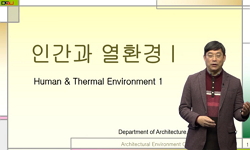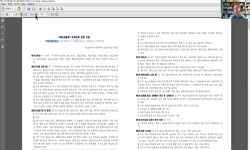본 논문은 2000년 1월부터 2024년 6월까지 『로동신문』에 대한 양적 및 질적 분석을 바탕으로 김정은 집권 시기 원림화 정책을 분석했다. 북한의 원림화 정책은 2019년부터 ‘거리와 마을, 일터...
http://chineseinput.net/에서 pinyin(병음)방식으로 중국어를 변환할 수 있습니다.
변환된 중국어를 복사하여 사용하시면 됩니다.
- 中文 을 입력하시려면 zhongwen을 입력하시고 space를누르시면됩니다.
- 北京 을 입력하시려면 beijing을 입력하시고 space를 누르시면 됩니다.
https://www.riss.kr/link?id=A109536090
- 저자
- 발행기관
- 학술지명
- 권호사항
-
발행연도
2024
-
작성언어
-
-
주제어
원림화 ; 로동신문 ; 생태환경 ; 지방발전 ; 본보기 ; Landscaping ; Rodong Sinmun ; ecological environment ; regional development ; showcase projects
-
KDC
300
-
등재정보
KCI등재
-
자료형태
학술저널
-
수록면
103-140(38쪽)
- 제공처
-
0
상세조회 -
0
다운로드
부가정보
국문 초록 (Abstract)
본 논문은 2000년 1월부터 2024년 6월까지 『로동신문』에 대한 양적 및 질적 분석을 바탕으로 김정은 집권 시기 원림화 정책을 분석했다. 북한의 원림화 정책은 2019년부터 ‘거리와 마을, 일터의 녹화사업’을 일컫는 의미로 구체화되기 시작했다. 그 배경에는 첫째, 2015년부터 2024년까지 10년 계획으로 돌입한 산림복구전투에서 이룩한 일정한 성과가 있다. 둘째, 수림화 즉, 산림복구전투와 함께 원림화를 병행할 경우 대중동원 등 시너지 효과가 있기 때문이다. 원림화 정책의 양상은 크게 세 측면에서 살펴볼 수 있다. 첫째, 지방발전 정책과 연계해 원림화를 강조한다는 점이다. 관광지역, 수해복구 대상지역은 건설 초기부터 원림화가 강조되고 있다. 2024년 초부터는 ‘지방발전 20×10정책’과 원림화 정책이 하나의 세트처럼 다뤄지고 있다. 둘째, 원림화에 관상적 가치만이 아니라, 생태환경보호 의미를 부각하며 정책 효과를 확장한다는 점이다. 셋째, 원림화 본보기가 그야말로 ‘보여주기식’으로 건설됐다는 점이다. 삼지연시와 평양시의 주요 거리 원림화는 기존 가로수들이 전체적으로 제거되고 새로 건설됐다. ‘보여주기식’ 본보기 건설은 원림화에 대한 정책적 의지를 보여줌과 동시에 대내외에 원림화 성과를 선전하는 방편이기도 하다.
다국어 초록 (Multilingual Abstract)
The policy is rooted in two key factors. First, the Forest Restoration Campaign, a 10-year plan initiated in 2015, achieved notable progress. Second, the simultaneous implementation of landscaping alongside forest restoration generates synergy effects, such as enhanced mass mobilization. The characteristics of the landscaping policy can be categorized into three main aspects. First, integration with Regional Development Policies. Landscaping is emphasized as part of regional development, particularly in tourist zones and flood recovery areas, where it has been prioritized from the early stages of construction. Since early 2024, the “Regional Development 20×10 Policy” has been closely integrated with landscaping initiatives. Second, focus on Ecological and Environmental Protection. Beyond aesthetic purposes, the policy highlights ecological and environmental protection, broadening its scope and effectiveness. Third, display-Oriented Model Constructions. Showcase projects in cities like Samjiyon and Pyongyang involved the removal and replacement of existing roadside trees with newly designed green spaces. These projects demonstrate the regime’s commitment to landscaping policies while serving as tools for domestic and international promotion of policy achievements.
This study analyzes North Korea’s landscaping policy during Kim Jong Un’s regime based on a quantitative and qualitative review of Rodong Sinmun articles from January 2000 to June 2024. The landscaping policy became more concretely defined in 2019...
This study analyzes North Korea’s landscaping policy during Kim Jong Un’s regime based on a quantitative and qualitative review of Rodong Sinmun articles from January 2000 to June 2024. The landscaping policy became more concretely defined in 2019, focusing on “greenification projects for streets, villages, and workplaces.”
The policy is rooted in two key factors. First, the Forest Restoration Campaign, a 10-year plan initiated in 2015, achieved notable progress. Second, the simultaneous implementation of landscaping alongside forest restoration generates synergy effects, such as enhanced mass mobilization. The characteristics of the landscaping policy can be categorized into three main aspects. First, integration with Regional Development Policies. Landscaping is emphasized as part of regional development, particularly in tourist zones and flood recovery areas, where it has been prioritized from the early stages of construction. Since early 2024, the “Regional Development 20×10 Policy” has been closely integrated with landscaping initiatives. Second, focus on Ecological and Environmental Protection. Beyond aesthetic purposes, the policy highlights ecological and environmental protection, broadening its scope and effectiveness. Third, display-Oriented Model Constructions. Showcase projects in cities like Samjiyon and Pyongyang involved the removal and replacement of existing roadside trees with newly designed green spaces. These projects demonstrate the regime’s commitment to landscaping policies while serving as tools for domestic and international promotion of policy achievements.
동일학술지(권/호) 다른 논문
-
- 동국대학교 북한학연구소
- 이현희 ( Lee Hyun Hee )
- 2024
- KCI등재
-
북한 반동사상문화 통제의 효과 - 주민의 심리적 반응과 대처를 중심으로 -
- 동국대학교 북한학연구소
- 이형종 ( Lee Hyung Jong )
- 2024
- KCI등재
-
- 동국대학교 북한학연구소
- 전영선 ( Jeon Young Sun )
- 2024
- KCI등재
-
2023년 북한 교육 동향 분석 -노동신문 기사를 중심으로-
- 동국대학교 북한학연구소
- 강구섭 ( Kang Gu Sup )
- 2024
- KCI등재





 KCI
KCI KISS
KISS






